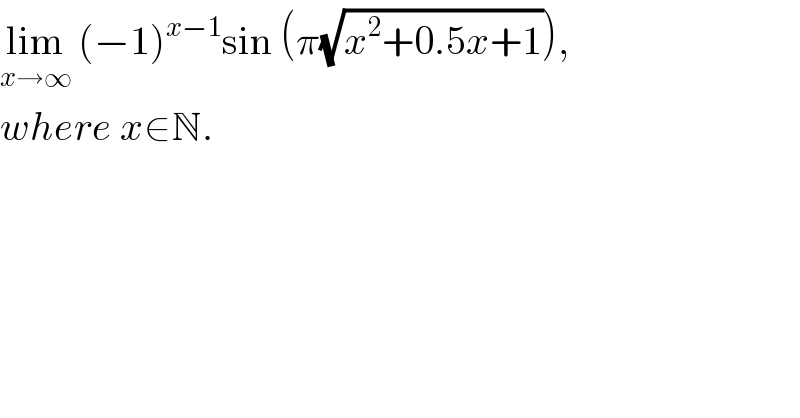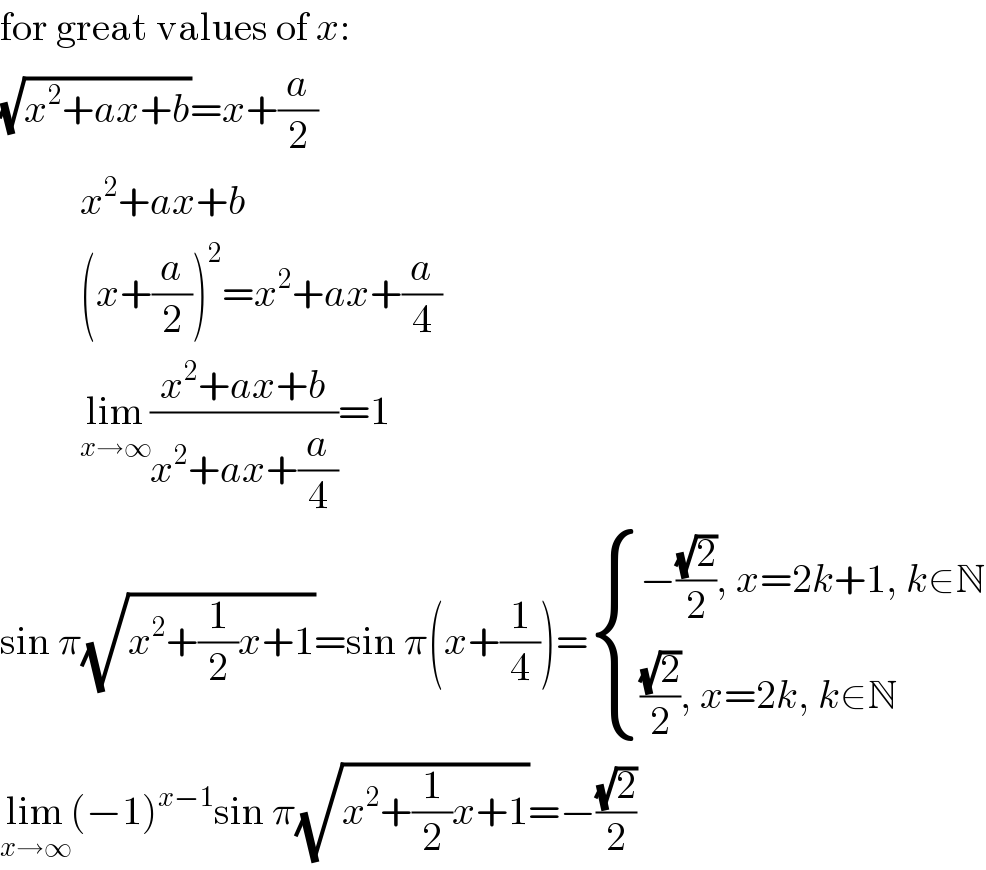
Question and Answers Forum
Question Number 34439 by rahul 19 last updated on 06/May/18

Answered by MJS last updated on 07/May/18

Commented by rahul 19 last updated on 07/May/18

Commented by MJS last updated on 07/May/18

Commented by rahul 19 last updated on 07/May/18
as you have neglect b , can't we neglect " ax " also as it is much smaller than x² I mean in this case (x+1/4) , why you have not neglected 1/4 ?
